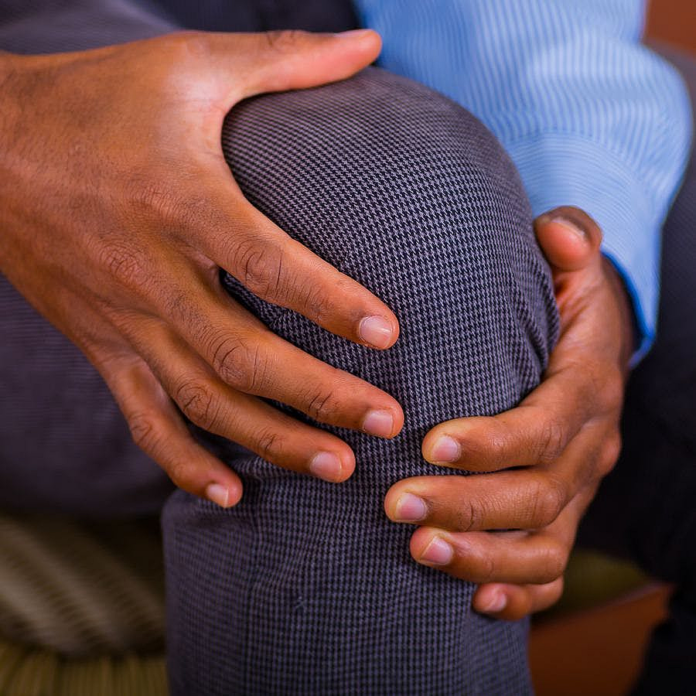Knee pain seems to be the order of the day for, especially seasoned folks. The discomfort can affect the way you walk, sit, exercise, go up and down stairs, and the way you enter/exit your vehicle. There are many causes that can trigger knee pain and it can get progressively worse.
Here are a few common causes of knee pain:
Osteoarthritis–most common form of arthritis affecting the knees; wear and tear of the cartilage in the knee joint that can result in bone-on-bone rubbing and produce painful bone spurs
Bursitis–the inflammation that comes from repeated pressure on the knee
Strain or sprain–Minor injuries to the ligaments caused by sudden or unnatural twisting
Runner’s knee–front of knee (kneecap) pain mostly affecting folks who are athletic
Poor-fitting footwear–shoes and sneakers that don’t fit properly can lead to knee pain injuries
Torn meniscus–cartilage acting as shock absorbers between the thighbone and shinbone; helps cushion the joint to keep it stable
Knee ligament injuries–they connect the thigh bone to the lower leg bones to stabilize the knee
Here are few suggestions that can help alleviate knee pain:
- RICE therapy
Rest, take a break from any strenuous activity that can tax your knees
Ice–Use cold packs for 20 minutes each time, a few times a day; do not apply the packs directly on your skin
Compression–Wear an elastic compression bandage
Elevation–When resting, raise your legs higher than your heart to reduce swelling
2. Knee brace
A brace will help relieve some of the pressure off your painful knee by stabilizing it.
3. Weight loss
If you are overweight, losing a few pounds can help reduce the pressure on your knees. Try changing your diet and incorporating some exercise that will not tax your knees. Swimming is one of the best choices of exercise if you have knee pain. The water keeps your body buoyant, taking the impact off the rest of your body like your knees.
4. Physical therapy
Physical therapists can help strengthen your lower extremities to help reduce pressure on your knees.
5. Anti-Inflammatory meds
Over-the-counter meds like ibuprofen (Motrin, Advil) can help relieve those painful episodes.
6. Injections
Ultrasound technology allows for the precise placement of injectable medications into or around the joint. Cortisone injections help relieve pain and inflammation. Hyaluronic injections help lubricate joints so they can move more freely. Platelet-rich plasma (PRP) and stem-cell injections help relieve pain and heal injuries.
Make sure to find an orthopedic doctor you can work with to help manage your knee pain and to discuss other options if need be.











